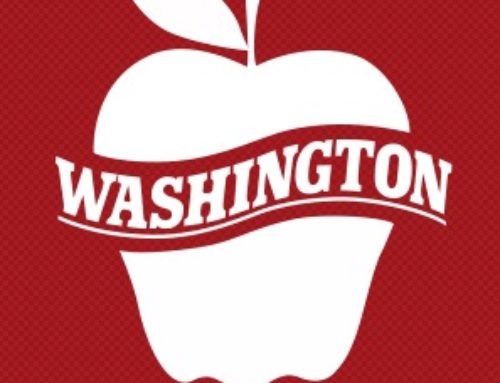family background/Viridiana is originally from Michoacán, Mexico, and grew up in Royal City. She is working on a degree at Wenatchee Valley College and is the daughter of Rafaela Saucedo and Leonardo Acevedo.
age/28
hometown/Royal City, Washington
crops/apples, cherries
business/Zirkle Fruit Co.
How did you get your start?
I grew up with migrant parents, and working in agriculture was the first shot that they had here in the U.S. As I was growing up, I remember picking cherries and enjoying the culture and agriculture. My dad had been coming to the U.S. since he was 19 years old, prior to us living here permanently.

When I started working in human resources (HR), it started a new journey for me. I saw a posting for this job on Facebook, came in and interviewed and never left. In my position, I’m also able to continue my college education and grow. I know as time goes on it can only get better. There’s a lot for me to learn and grow. Agriculture is a very big industry.
What have you learned on the job?
As I was progressing in my job, supervisors were also learning to be more comfortable with me, talking to me about situations that were happening, and encouraging me to go out and do things that I had never done before — such as learning about the growth of a tree and the pesticides that are used.
At that time, I completed my Train the Trainer certificate (for pesticide safety). Then, I was able to do other trainings and expose myself to different people and jobs that I hadn’t dealt with before.
I realized there are so many tasks that I can involve myself in and look for ways to make them better. I can make one small difference at a time, because nothing’s going to change overnight.
What do you do now?
I work mainly in the office, HR stuff, hiring, payroll, invoices, bookwork and balancing all that. Learning about all the different jobs being done helps me create an awareness of what’s going on. With that information, I can help others and help my manager make better decisions.
There’s been a big evolution in HR and, over the past six years, I’ve seen how we’ve improved processes, how we talk to people and how records are kept.
With me being out in the field and in the office, and having a little bit of both worlds, that has helped me get a better awareness and look out for potential problems. I use my HR background and the knowledge I’m gaining to guide people to where they need to be.
What courses have had an impact on you?
Of the courses that I’ve taken, I’ve found the ALP (the Agricultural Leadership Program run by the Washington State Tree Fruit Association, Washington State Department of Agriculture and Washington State University Extension) has helped me get a better understanding of whether we are successfully communicating at work.
After going through that program, one of the things I did was to go out to the orchard and work with people. I wanted to get them to know me and understand that when I say I’m going to do something, then I was actually going to do it. It didn’t matter if I was out thinning or training, it allowed the crews to get to know me a little bit and helped me better communicate with them, seeing that I’m not just an office person.
I was more approachable, and they could talk to me. I’m not out in the field all the time, scouting trees, picking apples or picking cherries, but I am in the office with a purpose. I do believe that’s very important. If we don’t have good bookkeeping and payroll, people are going to be mad. If there isn’t someone that’s reading labels, checking for PPE, then we’re not taking care of our people.
If we’re not taking care of our people, then the fruit that we’re picking to feed people is not going to get out there. HR is an important link in a much larger chain, and I’m part of that link.
What would you tell other younger growers?
With agriculture, it’s not a man’s land, not anymore. Anyone can do it. It’s definitely not an easy job. Just because you’re not in a suit all day or wearing nice shoes does not mean you’re not doing important work. It’s hard work.
There are so many types of jobs in ag; you can go to college and build better robotics and automation systems. We’re coming into a day when we’re not going to do as much manual labor for some tasks. Learning technology is a great asset. A little bit of office and business knowledge is great, along with knowing a bit of hard labor.
If that’s what you want to do, do it. There are so many opportunities where you can focus your skills in agriculture. The industry is not going to go away. Not now. Not anytime soon.






Leave A Comment